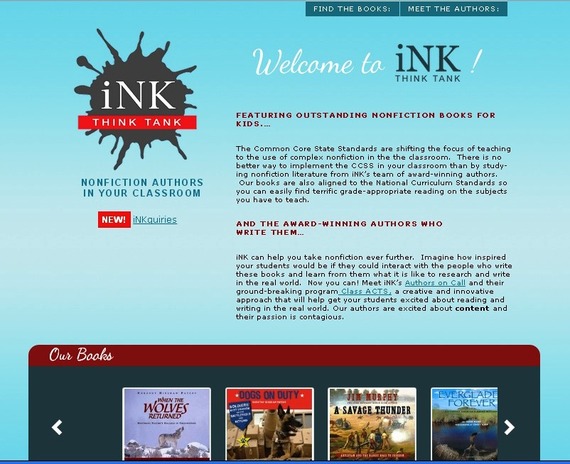I was surprised and delighted by a recent shout-out about one of my Huff Post entries by Diane Ravitch, a brilliant and tireless crusader to save public education in the face of the Common Core State Standards. Diane claims in her post that she and I disagree about the CCSS. Make no mistake, I am a HUGE fan of Diane Ravitch and I'm thrilled and honored that she has noticed me. At the end of her post she says: "I wish I could share her [my] enthusiasm for the Common Core standards. I fear that their purpose and their goal is to mass-produce standardized children. She disagrees. Disagreement is healthy. Let's keep talking about it."
Okay, Diane, that's an offer I can't refuse. As background, I am an author of children's science books. I have been free-lance for years. This means I work alone and belong to no institution, so maybe I don't know much about the politics of organizations. As a writer of science for children I have fought with editors to bring my own voice to my writing, to integrate art and text into a seamless learning experience, to integrate text and hands-on activities so that my reader understands the purpose of the activity is to illuminate a concept, and to bring highly stylized fine art to books normally illustrated with photographs. I have fought against reiterating information in the traditional flat, dispassionate, didactic way of textbooks and other books written for the school market. I am not alone in what I do. I have many colleagues who take information about the real world, in all disciplines, and craft it into books designed to captivate children into learning more.
The genre we write for, children's nonfiction literature, has long been a step-child genre, marginalized as "enrichment" for students, not the "meat" of the content material textbooks cover. My question to the educational community is "why?" Why do you give kids politically correct, boring books, sanitized by committee, to learn history when they could read the history mandated by your curriculum as handled by Jim Murphy, Steve Sheinkin, Andrea Warren and Carla Killough McClafferty? Why not teach math using some of David M. Schwartz's books? Why not learn how to look at the natural world through the eyes of Dorothy Hinshaw Patent, Alexandra Siy, Elizabeth Rusch, and Steve Jenkins? How about combining history and science through the brilliant author/illustrator Rosalyn Schanzer? And there's a lot more. Is it because no one knows about us except librarians? The schools that use our books as the main instructional reading source call it "literature-based" learning. For the most part they are the top independent schools. (You can meet all these authors and more on our website.)
To respond to this issue, in 2009 I started an organization, iNK Think Tank that consists of, at present, 31 award-winning children's nonfiction authors in all disciplines for grades K-12, although some adults might just love reading some of our books. One feature of the website is a free database of all of our books in print as aligned with National Curriculum Standards, i.e. by grade level and subject. (The CCSS are not in or aligned with the books; they are in the way the books are used by teachers and students.) Sometimes a title is so catchy, like those of April Pulley Sayre, that the exact discipline it addresses is a little obscure. I promise you that my book, Science Experiments You Can Eat, addresses the same principles of science as in any middle school science textbook. If our books are the first a child reads in a subject area, we have failed if they are the last. Not only are our books notable for their content, but for the writing as well.
So when the CCSS was first on the horizon, I read them. NO BIG DEAL. All they do is identify stages in what children should be able to do with information they get through reading and listening in terms of their own speaking and writing. In fact, they are quite useful in mapping a possible sequence of skills to develop proficiency. All good teachers, even someone like me, who left the classroom 45 years ago, understand these goals. More importantly, the CCSS do not identify any specific curriculum. As a literal person, I take the CCSS at their word. To me, they open the doors to using our books in classrooms. They are a tremendous opportunity to get away from standardization.
I understand Diane Ravitch's problem with the way the corporations who mass-produce educational materials have hi-jacked the CCSS to "scale-up" learning and standardize it. Any change is viewed as an opportunity to make money. First, let me say, that you don't need to create newly packaged materials to teach subject matter. There is a body of high-quality nonfiction literature out there (often excerpted for the assessment tests). Second, the only way anyone gains proficiency in anything is through practice. Children need to read many books (some by different authors on the same subject). They need exposure to many voices so they can discover the ones that resonate with them as individuals and are a clue to a direction they can follow for their own future learning.
This will not be accomplished through standardized reading, standardized testing and group-thinking by educators. The goals of the CCSS are not the problem. Any change in education would be jumped on by the educational business community. I think Diane Ravitch and I can agree on this. What she perceives as a difference between us lies somewhere in the purview of public policy implementation but understanding that point of view is way above my pay grade.

